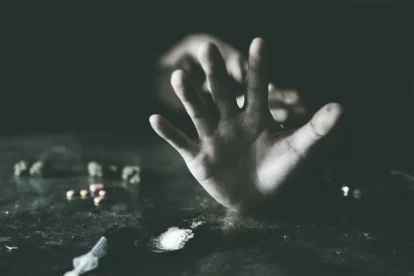What Detox Medications are Used for Drug Addiction Treatment, and Why?

Fear of withdrawal can be a significant barrier to addiction treatment, even for people who want to recover. By exploring the detox medications available for opioid, alcohol, stimulant, and benzodiazepine addiction, you can discover the possibilities for alleviating distressing withdrawal symptoms to begin your recovery safely comfortably. However, detox medications are only the first step to healing.
No one wants to be an addict. No one wants to need drugs or alcohol to get through the day or be beholden to dangerous chemicals. Even if you love the way substances make you feel, even if they temporarily take away your pain, even if they quell the distress that gnaws at you, the feeling of being dependent on drugs or alcohol is a sad, frightening, and often tremendously lonely. Addiction takes away your power and strips you of the things you value most, including your friends, family, and self-determination as your world starts to revolve around substances that ultimately cause you harm and suffering.
But even if you know that addiction is destroying you and you dream of a life without using, getting to a place of sobriety can be a scary prospect. Often, one of the primary barriers to getting clean isn’t the thought of long-term recovery, but the immediate suffering of withdrawal. This can be particularly true if you have tried to detox on your own in the past, only to find yourself back in the arms of substance abuse due to intolerable withdrawal symptoms.
While in the past it was thought that painful withdrawal was a productive part of the recovery process. The idea was that it would act as a motivator for staying clean once withdrawal was over—it’s an experience no one would want to go through twice (or even once, if it could be avoided). Today, however, the medical community understands that not only does this not work, it keeps people from seeking the help they need to heal. With this knowledge, a growing number of addiction treatment programs are offering medically supervised detox programs with the supports you need to withdraw safely and comfortably. One of the primary components of these programs is the judicious use of detox medications, which can minimize or eliminate distressing and dangerous withdrawal symptoms and allow you to begin your recovery journey in a positive way.
Exploring Detox Medications
Addiction changes you. By continuously exposing your brain to harmful substances that disrupt normal neurological function, you become dependent on the artificial introduction of chemicals to maintain a state of neurological equilibrium. This neuroadaptation means that sudden discontinuation of drugs or alcohol biologically throws you out of alignment and can lead to frightening, uncomfortable, and dangerous physical and psychological withdrawal symptoms. Detox medications seek to alleviate these symptoms by chemically intervening in the withdrawal process and minimizing neurological shock. While detox medications are not available for all forms of addiction, those that do exist can be tremendously effective for alleviating physical and psychological distress, particularly when combined with supportive counseling by trained detox specialists.
Get Help for Drug Addiction
Alta Mira is a Safe Place to Get Your Life on Track
Opioid Addiction
Opioid discontinuation is perhaps one of the most storied forms of withdrawal there is. Simply hearing descriptions of it can be enough to make you reluctant to try to get clean. The emotional and physical phenomena that occur during withdrawal can indeed be painful; as Pauline Anderson writes, “The combination of uncomfortable symptoms, such as irritability, anxiety, muscular and abdominal pains, diarrhea, sweating, and insomnia, plus intense craving makes completing withdrawal challenging for the majority of patients.” However, a number of opioid detox medications are available to minimize these symptoms. These include:
- Methadone
- Subutex (buprenorphine)
- Suboxone
- Clonidine
These medications work to reduce cravings, relieve withdrawal symptoms, and/or shorten the length of detox. Some may also be used as relapse prevention medications for long-term maintenance. Other medications may be used to treat vomiting, regulate sleep, and address emotional symptoms of discontinuation.
Alcohol Addiction
Alcohol withdrawal can be a deeply uncomfortable state with symptoms ranging from nausea, shaking, and anxiety to hallucinations, seizures, delirium tremens, and cardiovascular distress. These symptoms can vary in severity, but in their most acute form, they can be life-threatening. As such, alcohol withdrawal should always be completed under medical supervision, preferably using detox medications that address both the physical and emotional symptoms of withdrawal. Benzodiazepines are the most common type of alcohol detox medication, particularly:
- Diazepam (Valium)
- Chlordiazepoxide (Librium)
- Lorazepam (Ativan)
Additionally, anticonvulsant, anti-nausea drugs, and antidepressant drugs may be used.
Stimulant Addiction
The primary symptom for most people discontinuing stimulants such as methamphetamines, cocaine, and ADHD medications is dysphoria. This may be accompanied by a range of additional psychological as well as physical symptoms, including anxiety, hallucinations, paranoia, sleep disturbances, and body aches. A range of medications is available to ameliorate these symptoms, including:
- Modafinil
- Benzodiazepines
- Antidepressants
- Antipsychotics
The exact detox medications used will depend on the type and severity of symptoms you are experiencing as well as the nature of your drug use.
Benzodiazepine Addiction
Benzodiazepine withdrawal symptoms can come on rapidly after discontinuation and include anxiety, depression, psychosis sleep disturbances, memory loss, tremors, and seizures. Because some withdrawal complications may be life-threatening, it is vital to detox under the supervision of a medical professional, typically using benzodiazepines themselves as detox medications to allow the body to gradually adjust to lower doses and give your brain time to restore itself to equilibrium. When using benzodiazepines as detox medications, physicians will choose less potent medications with long half-lives, such as:
- Diazepam (Valium)
- Clonazepam (Klonopin)
These medications promote stability and allow for safer withdrawal than shorter-acting, more potent benzodiazepines like alprazolam (Xanax).
Detox Medications As the First Step to Healing
While detox medications can be tremendously valuable in removing barriers to recovery and allowing you to begin healing safely and comfortably, they do not take the place of comprehensive addiction treatment. As the National Institute on Drug Abuse points out, “[D]etoxification is a useful first step when it is followed by some form of evidence-based treatment.”
Programs that offer on-site medically-supervised detox are the gold standard in addiction treatment, as they allow for continuity of care and gradual integration into the treatment environment. While detox medication can be tremendously useful, simultaneous participation in treatment allows you to benefit from other forms of therapy that alleviate a variety of emotional and physical withdrawal symptoms, including yoga, meditation, acupuncture, and meditation.
Additionally, continuity of care provides invaluable opportunities for establishing trusting therapeutic alliances that facilitate recovery throughout your time in care and optimize your ability to benefit from treatment. “When the symptoms of detox subside, a bond has begun to develop between the client and the members of his/her treatment team,” explains Richard Taite of Psychology Today.
There will be moments when the client is uncomfortable during detox. As s/he communicates these issues to the treatment team and they are promptly dealt with, trust builds. This is the foundation for the compassionate therapeutic relationships a person needs to recover from [addiction].
By using medically supervised detox as a time for nurturing both yourself and your therapeutic relationships, you can create a solid foundation for treatment success and start on the path to lasting wellness.
Alta Mira offers comprehensive treatment for people struggling with drug and alcohol addiction as well as co-occurring mental health disorders and process addictions. Contact us to learn more about our renowned suite of programs and how we can help you or your loved one create a richer, more joyful life.






